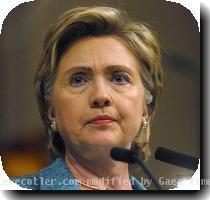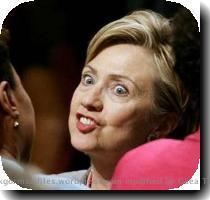Europe offers skeptical reaction to Iranian proposal to ship uranium overseas
By APWednesday, February 3, 2010
Europe offers skeptical reaction to Iran nuke plan
PARIS — European powers reacted skeptically Wednesday to Iran’s offer to send uranium abroad for enrichment, questioning the sincerity of the bid to end Iran’s showdown with the West.
French Foreign Ministry Bernard Kouchner said he saw the surprise Iranian gesture as stalling rather than responding to an international offer that, if rejected, could lead to a new round of sanctions.
“My (personal) interpretation is that they are buying us time and they are losing it” themselves, Kouchner said at a joint press briefing with China’s foreign minister. “I am perplexed and even a bit pessimistic.”
German Foreign Minister Guido Westerwelle told journalists that “Iran has to be measured by its actions, not by what it says.”
“It is up to Iran to show an end to its refusal to negotiate,” he said.
President Mahmoud Ahmadinejad said Tuesday that Iran was ready to send its uranium abroad for further enrichment as requested by the United Nations. An International Atomic Energy Agency proposal last year envisaged Iran sending low-enriched uranium to Russia and then to France for further enrichment and then processing into metal fuel rods for use in a research reactor in Tehran. It was aimed at lowering international tensions between Iran and the countries negotiating over its nuclear program — the U.S., China, Russia, Britain, France and Germany.
Britain’s Foreign office said Wednesday that: “We have always supported the proposal that the IAEA made in October. If Iran is now indicating that they will take it up we look forward to them making that clear to the IAEA.”
Russia and China, which has taken over the presidency of the U.N. Security Council, have been reticent about voting a fourth round of sanctions on Iran. U.S. Secretary of State Hillary Clinton said last week that she and others who support additional sanctions on Iran over its disputed nuclear program are lobbying China to back new U.N. penalties on the Iranian government.
Chinese Foreign Minister Yang Jieche stressed the need to continue negotiations with Iran and come up with a quick diplomatic solution.
“We want a consensus as soon as possible,” he said.
It was unclear how much of a concession the Ahmadinejad comments represented.
He appeared to be saying for the first time that Iran was willing to ship out its enriched uranium and wait for it to be returned in the form of fuel for its Tehran research reactor. But his time frame of four or five months appeared to fall short of the year that Western officials say it would take for Iran’s enriched fuel to be turned into fuel rods for the reactor.
“If Iran is willing to revert to the plan agreed upon earlier, we will only welcome this,” Russian Foreign Minister Sergey Lavrov said at a news conference: “We want to verify this information now.”
Iran’s foreign minister said the plan to send its uranium abroad was aimed at building confidence in the country’s nuclear program.
Foreign Minister Manouchehr Mottaki said in Turkey that swapping low-enriched uranium with uranium enriched by 20 percent was “a formula which could build confidence.”
_________
Associated Press Writer Juergen Baetz in Berlin contributed to this report.
Tags: Asia, China, East Asia, Eastern Europe, Europe, Foreign Policy, France, Geography, Greater China, Hillary Clinton, Iran, Iran-nuclear, Middle East, Paris, Russia, Tehran, Turkey, Western Europe

